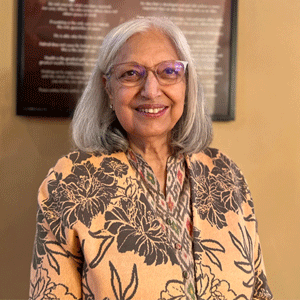
The dynamic polymer industry remains central to modern life, providing materials that shape our everyday experiences and contributing to economic growth and technological progress. In this evolving space, Alloy Polymers has been one of the pioneers since 1982. It began the journey under the visionary leadership of Subhash and Kamini Pahuja. Alloy Polymers' commitment to customer-centric solutions became evident from the outset. Starting with carbon black production, a less popular material at the time, they quickly adapted to the evolving market and offered solutions into multifarious technologies for compounding high-end engineering polymers, including color master batches.
In 2002, a polypropylene-based plant was acquired from a customer, allowing the company to expand its service in response to the changing needs of its customers. The success led to the establishment of plants in various U.S. locations. With the geographic expansion and global market connectivity driven by the internet era, Alloy Polymers caught the attention of potential partners who saw the opportunity in the owners’ Indian roots.
In Alloy Polymers' ongoing interest to follow its customers, a turning point came when a Hong Kong-based customer with its main office in Germany offered Alloy Polymers a unique opportunity: to establish a new facility in India. This marked a significant phase of growth and global expansion. Then VP - Corporate Development, Kanwal K Guliani, joined a business mission to India with the Governor of Virginia in 2006. He came back with some leads and recognized that timing was right.
Setting up operations in India was no easy task, but with unwavering commitment and resilience, Alloy Polymers overcame the challenges. Her Partner Kanwal moved to India to manage the new plant. Soon after the facility was purchased in Pune, and an initial machine was ordered, the first customer signed on. Since it was a greenfield effort, it took two years for them to generate the first pallet, and soon after, they signed two other customers, and since then they never looked back. Today, with a total capacity of 30 million pounds and long-term contracts, Alloy Polymers thrives on quality, consistency, and customer satisfaction. Let’s talk to Kamini and learn more from her insights.
Can you take us through your learnings that equip you to succeed in this business?
I hold an MBA from the USA & an MA in Mathematics from Punjab University. My partner, Kanwal, has a mechanical engineering degree from India. Our expertise in the plastic industry is primarily hands-on, learning on the job. I've had to purchase all the machinery for our company, and to understand them, I've personally visited our suppliers and sent my team to learn from them.
Although I may not possess in-depth knowledge of plastic chemistry, I do have a strong understanding of the mechanics, functionality, and manufacturing processes. The management of Alloy Polymers pursued ISO training, a mandatory certification for automotive suppliers, and prioritizes the Deming method of quality, emphasizing its commitment to meet the automotive standards of excellence.
Before my journey into the polymer industry, I worked with a company, AT&T, that was investing significantly in its management training, and I was fortunate enough to learn from the best. These programs included technical training and leadership development, which became invaluable as I transitioned into the world of polymers. At the end of the day, I've learned that degrees and credentials are essential, but the real teachers are the people you work with and learn from.
Alloy Polymers plans to double its capacity from 15,000 tons to 30,000 tons in five years; venture into ancillary services & offer comprehensive solutions for Automotive, Appliances, Packaging & Consumer goods, & more
What have been the major business challenges you've encountered?
The most significant challenges in my role involve international operations with time differences and building trust. During the construction phase, ensuring safety and quality were difficult, but we established excellent work standards. Additionally, economic fluctuations and policy changes, such as demonetization and GST, posed hurdles. However, India has improved its business environment, and the dedicated, sincere workforce has made the transition smoother, despite cultural differences in expectations between the USA and India.
Entering the Indian market was a bit harder, but once you're in, it's easier to navigate due to the positive and sincere attitude of the Indian workforce. However, there is a shortage of skilled labor due to the educational systems that often overlook the importance of preparing students for non-higher education routes. Over the years, I've been pleasantly surprised at how quickly things are progressing.
What is your guiding leadership philosophy?
It revolves around process maximization, performance maximization, continuous transformation, and the pursuit of value-added partnerships. Transparency is our cornerstone principle. We call our ‘associates’ to create a culture of openness and fearlessness. We believe that if we take care of our people, then they, in turn, take care of our customers; the rest falls into place forming a seamless feedback loop. We've successfully maintained this approach for several decades.
What would be your advice to young entrepreneurs?
I'd say, ‘Jump in, don't look back’. In both business and life, your survival instincts will kick in once you commit. Passion is essential, as it fuels your journey. Once you're in, don't give up, even when facing the inevitable ups and downs. Embrace change because products now have shorter lifespans, and innovation is key. Keep up with technological advancements. Humility is crucial; it's not about subservience but recognizing the value of continually building relationships. Cultivate more friends than enemies for enduring success. Stay humble, focused on your customers, keep moving, and anticipate change.
We use cookies to ensure you get the best experience on our website. Read more...